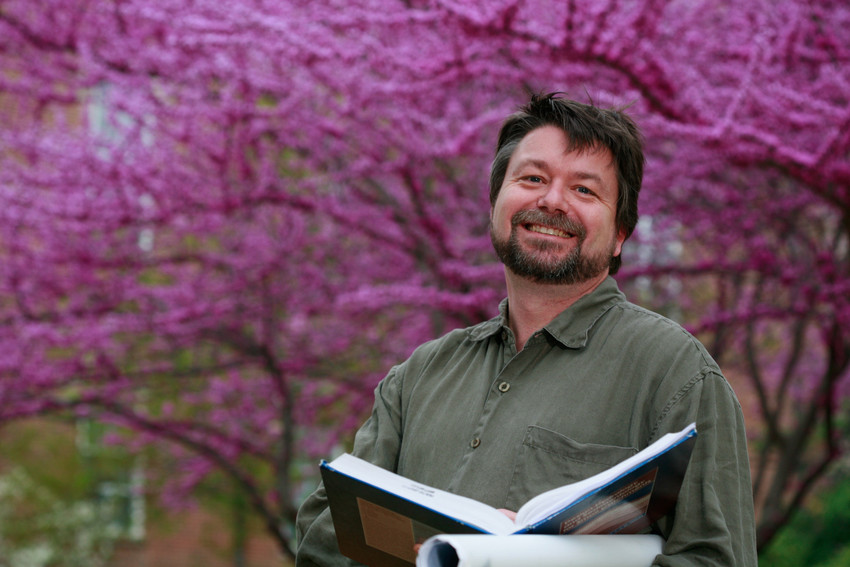
Marty Matlock, executive director of the U of A Office for Sustainability and professor of ecological engineering in the Department of Biological and Agricultural Engineering, will receive a Presidential Citation from the American Society of Agricultural and Biological Engineers. The citation will be presented July 20th at ASABE's 2016 Awards Luncheon in Orlando, Florida.
The citation will be awarded "in recognition of his outstanding leadership in positioning ASABE as a leader in sustainability."
Matlock served as project lead for the development of a framework that can be used by the agriculture industry to guide and measure continuous progress toward sustainable agricultural production. This framework, which was published by ASABE as a standard titled ANSI/ASABE S629, includes provisions for defining and benchmarking key performance indicators, setting goals, implementing strategies for continuous improvement and reporting improvements.
Matlock also described the global role, challenges and opportunities for agricultural and biological engineers in sustainable agriculture in a four-part series in Resource, a magazine published by ASABE.
While consumers and businesses have demanded sustainable products for years, Matlock explained that the agriculture industry has struggled to implement sustainability, because without a framework such as ANSI/ASABE S629, sustainability was an abstract concept that couldn't be measured. ASABE's framework combines principles of good business practices with science-based decision making to provide a clear guide that the industry can easily incorporate into existing practices.
"We worked very hard to make the standard simple, short, easy to understand, and non-prescriptive," he explained. "Any farmer of any crop anywhere in the world could benefit from this standard." Matlock explained that making the standard easy to use was important, because in order to be successful, sustainability efforts must be a continuous process, not a one-time endeavor. "Sustainability is not a destination; it is a journey," he said.
Matlock pointed out that sustainability research at the U of A is multifaceted and multidisciplinary. Faculty in every college on campus are coordinating their efforts in this area. As a result, "the University of Arkansas is a global leader in practical solutions to sustainability challenges," he said.
Contacts
Camilla Shumaker, director of communications
College of Engineering
479-575-5697, camillas@uark.edu